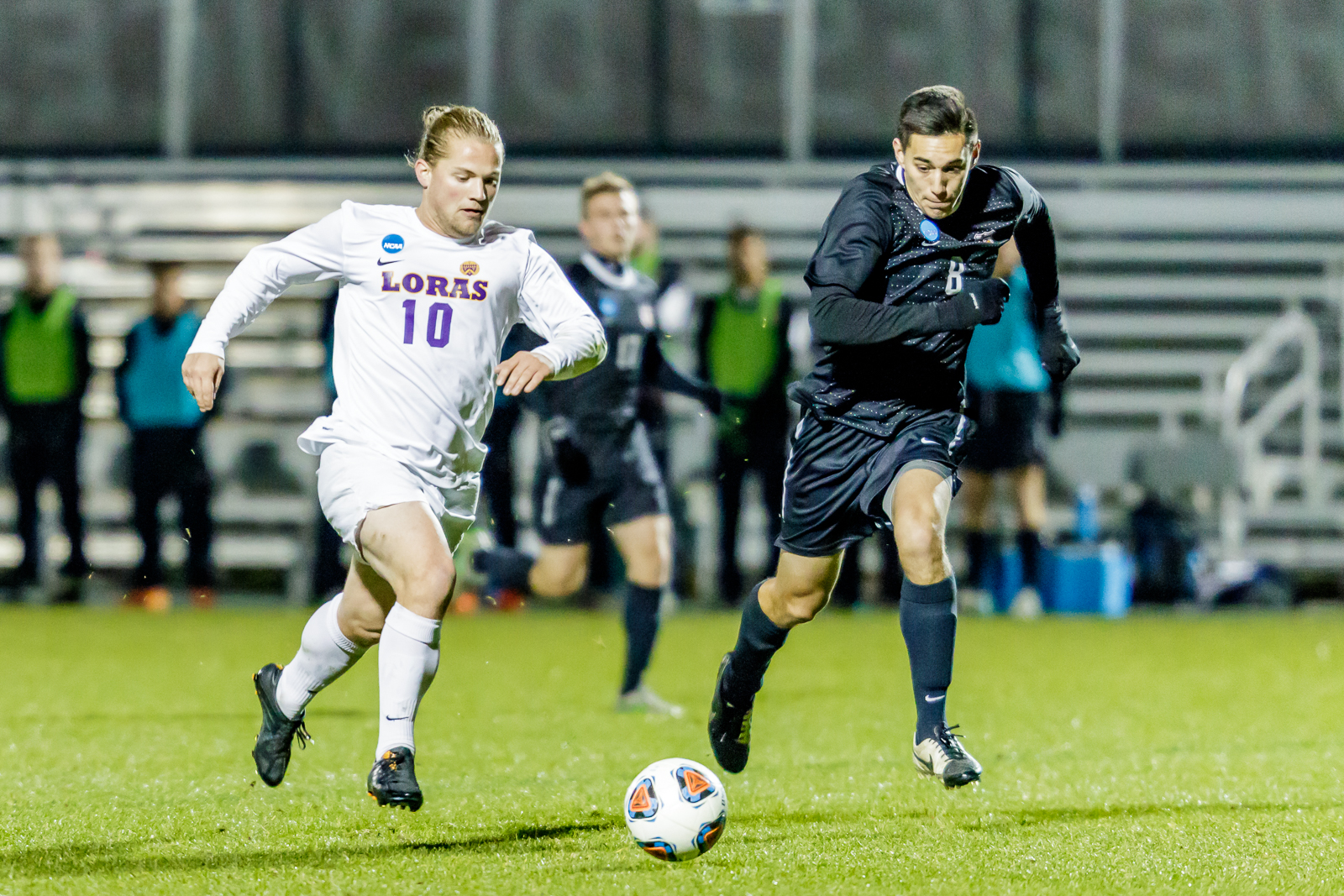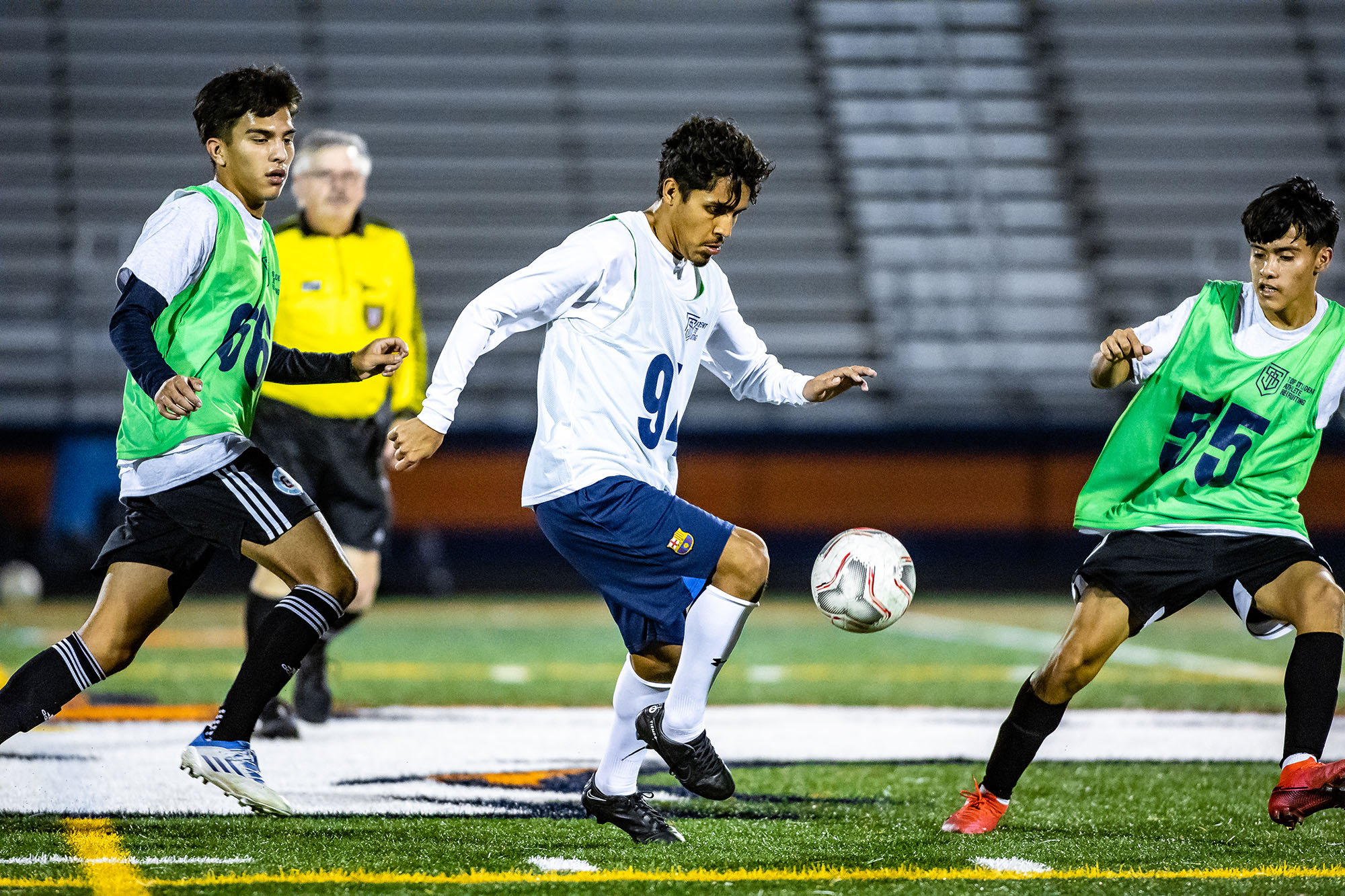Within the next 3-4 weeks, college soccer games at all divisions will be starting. No matter your graduation year, I firmly believe every prospect should attend college games so that they can see the level of play, regardless if it is a good fit school for them or not. Understanding what it takes to play at this level is an important step in the process that many prospects unfortunately overshoot. They want to play at the Division I level, but the reality is, they have never seen a college game at any level.
If you haven’t seen a team play, how do you know you can play for them? Without watching a game with your own eyes, it’s hard to know how competitive college soccer is, let alone making one of these programs’ rosters, regardless of the level. If you are honest with yourself when watching a college game live, it can really help you determine if you possess the talent to play and contribute at that level. On occasion, you might even find that you can target schools at a higher level if your skills and abilities are ready for that.

I coached one of the best Division III college teams in the country for over two decades. I lost track of how many people came up to me, after watching one of our games for the first time, and told me how good the level of play was. There are great teams at every level, which is why it’s so important to watch these games live for yourself and give yourself an honest evaluation of yourself and your skill level.
As summer winds down, take a look at your calendar for August through October and figure out what works for you to go watch games. If you are a junior or senior, and in conversations with a college coaching staff, see if you can go see that program play. If you are younger and just starting in your recruiting process and not sure where your level of play might be at quite yet, go and see some local games.
No matter your age, let coaches know from both teams that you are attending beforehand via email and be sure to introduce yourself quickly either before or after the game. While it may be outside of your comfort zone at first, a simple touch point like this can help you stand out and help the coaches remember you.

Speaking from my own experience as a college coach, when high school players did this, it moved them up on my list. It showed they were committed to the process and serious about the next step in their careers.
Even if it isn’t a college you are super excited about, you need to realize coaches move around and the more colleges interested in you the better off your recruiting process will be.
College soccer at most levels is very good and a big jump from high school or club. When you go, put your phone away and really watch the game. Watching college soccer games is an excellent way for you to gauge the level of play and if you can see yourself making an impact in a program and gain insights into the skills, tactics, and overall competitiveness of the sport. Watch those that play your position and be real with yourself and your skill level. When you’re watching, ask yourself the following questions:
1. Do you have the skill level? College soccer features some of the most talented young players in the country. By watching these games, you can observe their technical abilities, passing accuracy, shooting skills, dribbling techniques, and defensive prowess.
2. What is your tactical awareness? College soccer teams often employ various tactical formations and strategies. Observing how teams set up defensively and offensively, how they transition between phases of play, and how players position themselves on the field can provide valuable insights into the tactical side of the game.
3.How do you fit into the environment? College soccer is a highly competitive level of play. Watching these games can give you a sense of the intensity and physicality that players experience at this level.
4. What are the player roles and positions? You can observe the different roles and positions on the field and how players handle their responsibilities. This can help you better understand the demands of specific positions and what coaches may be looking for in players for those roles.
5. Is your speed of play good enough? Soccer is a sport that requires quick thinking and decision-making. Watching college games can provide examples of how players make split-second choices on and off the ball.
6. How is the team’s chemistry? You can witness the importance of teamwork and chemistry among players. College teams often emphasize cooperation and communication, and observing how players work together can be instructive.
7. What is the coaching style? Each college team may have a unique coaching approach. By watching different college soccer games, you can see how coaching styles impact team performance and player development.

When attending college soccer games, take the opportunity to analyze and learn from the players and teams on the field. You can pick up valuable lessons to apply to your own game and gain a deeper appreciation for the sport’s intricacies. Get ahead of the game before your calendar fills up for the fall and schedule an opportunity to see college games. Some college teams start games before the school year even begins, so be sure to take advantage of this before your own school year gets under way.

